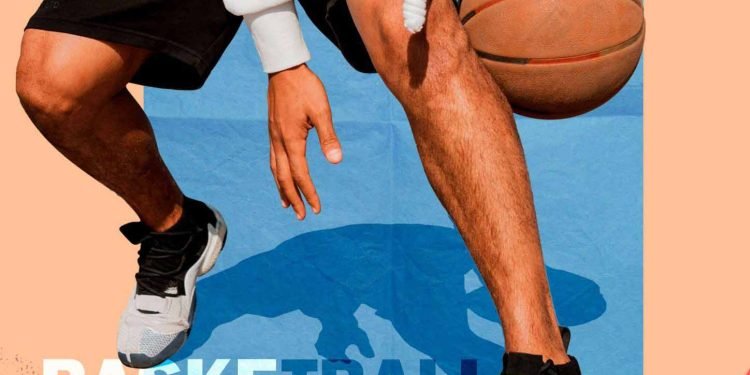Remember when the only way to catch a glimpse of your favourite sports stars in action was to buy NBA jerseys or other sports memorabilia or tune in to television broadcasts of games? Well, that’s ancient history. In today’s interconnected world, social media has become the go-to platform for sports fanatics and athletes. This digital phenomenon has transformed how athletes build their careers and how fans engage with their sporting heroes. But how exactly has social media managed to score this touchdown? Let’s delve into the role of social media in sports and unravel its impact on athletes’ careers and fan engagement.
Building a Personal Brand: Athletes’ Ticket to Success
In the age of social media, athletes are no longer just sportspeople – they’re brands. An athlete’s brand is their unique identity, including their values, style, and on-field persona. A strong personal brand helps athletes attract lucrative endorsement deals and expands their fan base, both of which are crucial for career success.
Social media platforms such as Instagram, Twitter, and Facebook have become essential tools for athletes to cultivate their brands. These platforms offer them direct communication with fans, enabling them to showcase their personalities, share behind-the-scenes content, and engage in real-time conversations. Think of Cristiano Ronaldo’s massive Instagram following – the Portuguese footballer has leveraged his social media presence to become one of the highest-paid athletes in the world.
But how does an athlete build a successful personal brand on social media? Here are some key strategies:
- Authenticity: Fans appreciate genuine content that showcases an athlete’s true personality. Transparency and honesty can go a long way in building trust and loyalty among followers.
- Consistency: Maintaining a regular posting schedule and maintaining a consistent brand image is essential for keeping fans engaged.
- Engagement: Responding to comments, sharing user-generated content, and participating in trending conversations can boost an athlete’s visibility and strengthen their connection with fans.
The Power of Fan Engagement: Cultivating Loyal Supporters
As sporting events have evolved from mere competitions to immersive experiences, fan engagement has become a critical component of an athlete’s career. Social media has revolutionised how athletes connect with their supporters, giving rise to new forms of interaction that go beyond the traditional autograph signing or photo session.
One prime example of social media-driven fan engagement is user-generated content (UGC). Athletes can share UGC, such as fan-made artwork or videos, on their digital platforms, giving their supporters a sense of ownership and pride. This fosters a sense of community among fans and provides athletes with a treasure trove of creative content to share on their feeds.
Moreover, social media enables athletes to converse with their fans actively. By replying to comments, answering questions, or engaging in lighthearted banter, athletes can cultivate a loyal following that feels personally connected to them. This kind of engagement has a two-fold benefit: strengthening the bond between athletes and their fans while boosting their online presence.
Social Media Gaffes: Navigating the Perils of Online Exposure
While social media can propel an athlete’s career to new heights, it also comes with risks. One misstep on these digital platforms can result in controversies that tarnish an athlete’s reputation and potentially harm their career prospects. Instances of inappropriate tweets or Instagram posts have led to athletes facing public backlash and even losing lucrative endorsement deals.
Athletes need to adopt a cautious approach to their social media use to minimise the risks associated with online exposure. This includes:
- Being mindful of the content they share: Athletes should consider the potential impact of their posts on their fans, sponsors, and team members before hitting the “share” button.
- Developing a crisis management plan: A well-defined strategy for handling controversies can help athletes respond effectively and minimise damage to their reputations.
- Seeking professional help: Engaging the services of public relations experts or social media managers can ensure that athletes maintain a polished online presence while avoiding pitfalls and controversies.
The Impact of Social Media on Sports Journalism
In addition to shaping athletes’ careers and fan engagement, social media has also transformed the world of sports journalism. As platforms like Twitter and Facebook become primary sources of real-time updates, traditional sports reporting is forced to adapt to this new landscape.
Sports journalists can no longer rely solely on their access to athletes or complete information to break news stories. Instead, they must also harness the power of social media to monitor developments, crowdsource content, and engage with their audience. This has given rise to citizen journalism, where fans and amateur reporters share breaking news, analysis, and opinion pieces on social media.
Here are some ways in which sports journalism has adapted to the social media age:
- Embracing multimedia storytelling: To stand out from the crowd, sports journalists must experiment with various storytelling formats, such as podcasts, live streams, and interactive graphics.
- Focusing on analysis and context: With real-time updates readily available on social media, sports journalists need to provide in-depth analysis and context to add value to their coverage.
- Building a personal brand: Like athletes, sports journalists must also develop their brand on social media to connect with their audience and enhance their credibility.
The Future of Social Media in Sports: What Lies Ahead?
As social media continues to reshape the sports landscape, we can expect innovations and trends to emerge in the coming years. Some exciting developments to watch out for include:
- Virtual reality (VR) fan experiences: As VR technology advances, fans may soon be able to immerse themselves in live sporting events from the comfort of their homes, interacting with other spectators and even athletes through social media.
- The rise of eSports: With the growing popularity of competitive gaming, social media platforms will play a crucial role in promoting and broadcasting eSports events and fostering fan engagement.
- Artificial intelligence (AI) in sports analytics: AI-powered tools can analyse vast amounts of data from social media platforms to provide insights into fan sentiment, athlete performance, and market trends, helping athletes and teams make data-driven decisions.
In Conclusion: Social Media – A Game Changer in Sports
Social media has undeniably revolutionised the world of sports, offering athletes a powerful platform to build their personal brand, engage with fans, and navigate the challenges of online exposure. At the same time, it has transformed sports journalism and opened up exciting possibilities for the future of fan engagement.












